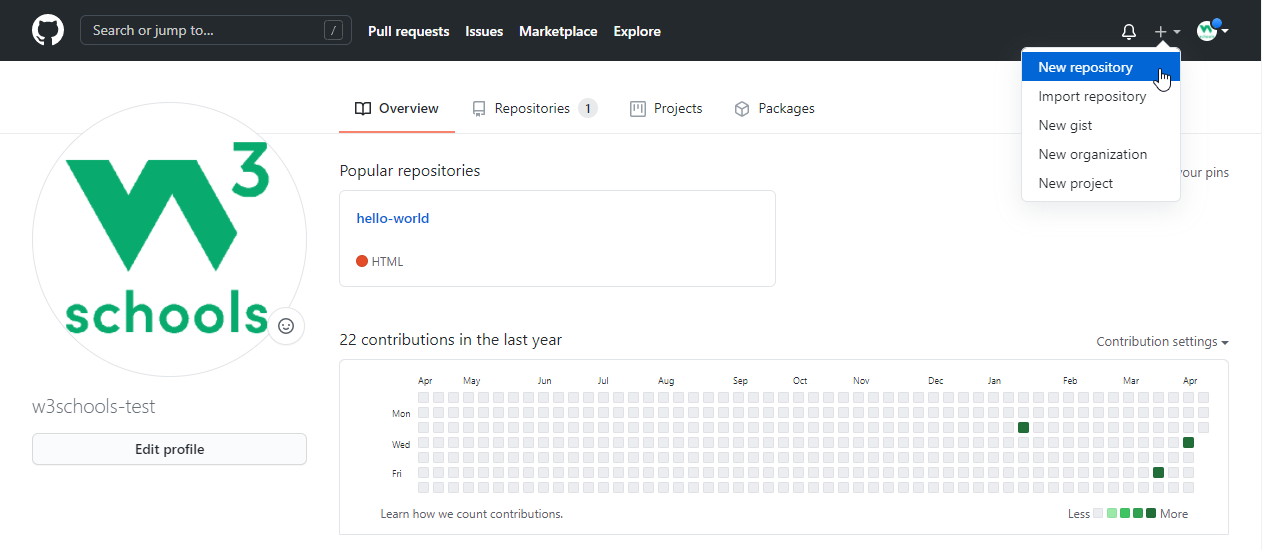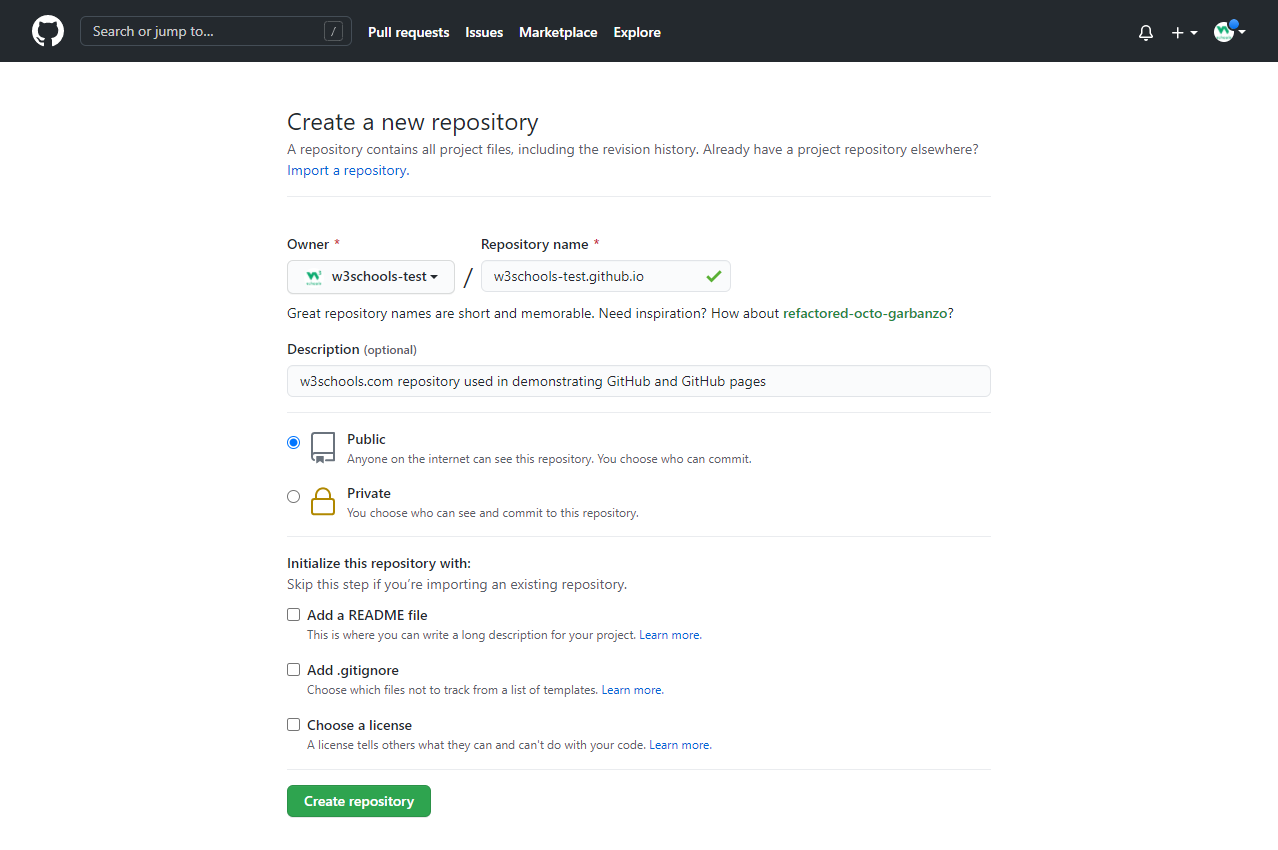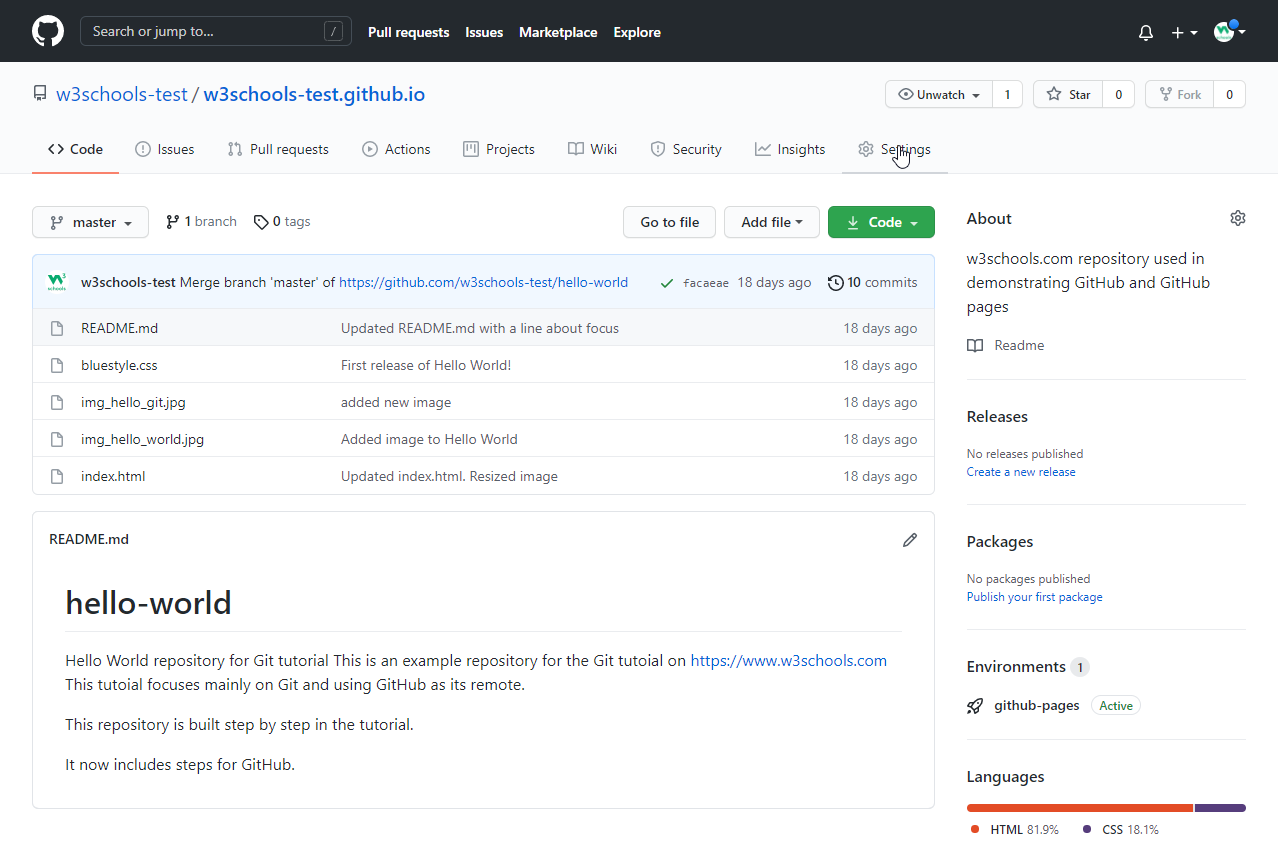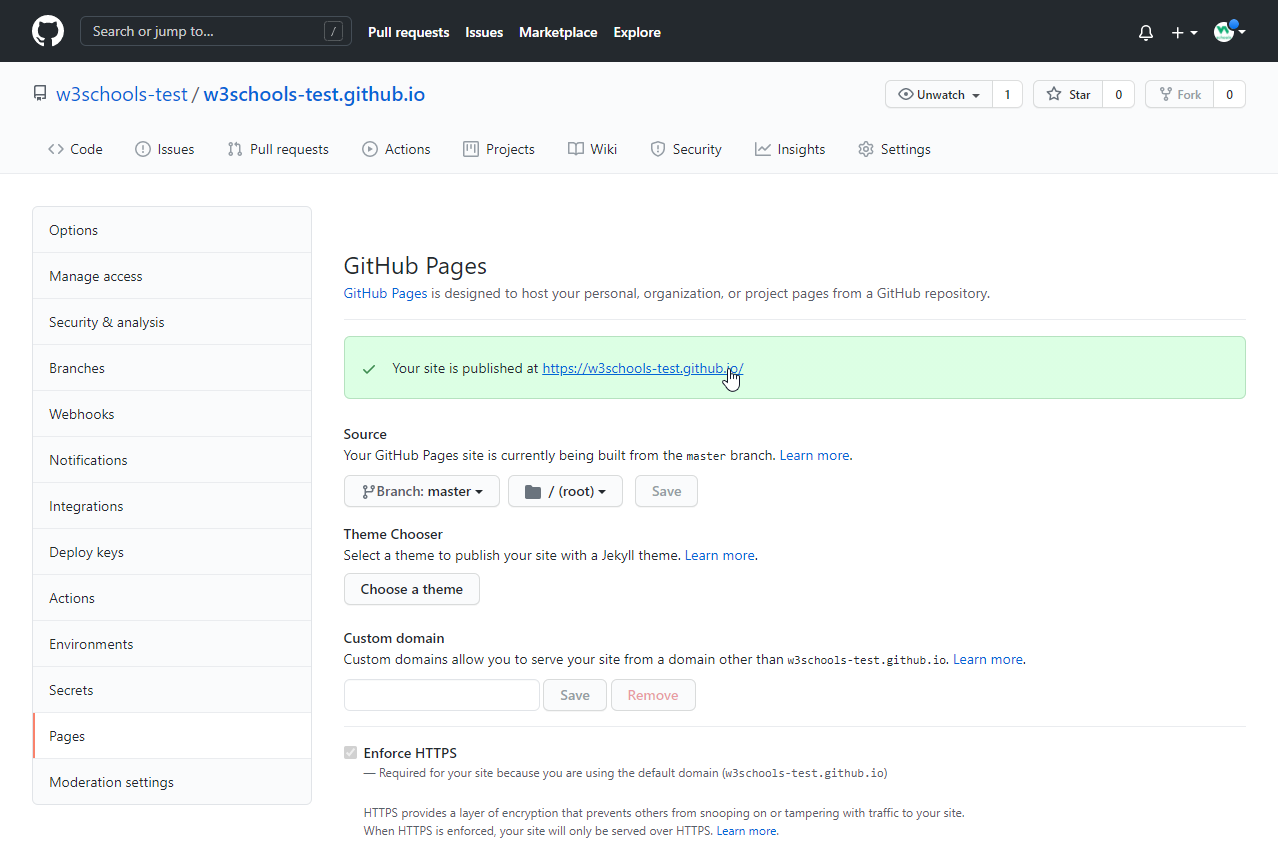GitHub Pages
1. GitHub Pages
Host Your Page on GitHub
With GitHub pages, GitHub allows you to host a webpage from your repository. Let's try to use GitHub Pages to host our repository.
Create a New Repository
Start by signing in to GitHub. GitHub pages need a special name and setup to work, so we start by creating a new repository:

This repository needs a special name to function as a GitHub page. It needs to be your GitHub username, followed by .github.io:

Push Local Repository to GitHub Pages
We add this new repository as a remote for our local repository, we are calling it gh-page (for GitHub Pages).
Copy the URL from here:

And add it as a new remote:
Example
git remote add gh-page https://github.com/w3schools-test/w3schools-test.github.io.gitMake sure you are on the master branch, then push the master branch to the new remote:
Example
git push gh-page master
Enumerating objects: 33, done.
Counting objects: 100% (33/33), done.
Delta compression using up to 16 threads
Compressing objects: 100% (33/33), done.
Writing objects: 100% (33/33), 94.79 KiB | 15.80 MiB/s, done.
Total 33 (delta 18), reused 0 (delta 0), pack-reused 0
remote: Resolving deltas: 100% (18/18), done.
To https://github.com/w3schools-test/w3schools-test.github.io.git
* [new branch] master -> masterNote: If this is the first time you are connecting to GitHub, you will get some kind of notification to authenticate this connection.
Check that the new repository has received all the files:

Check Out Your Own GitHub Page
That looks good, now click the Settings menu and navigate to the Pages tab:

The GitHub page is created, and you can click the URL to view the result!